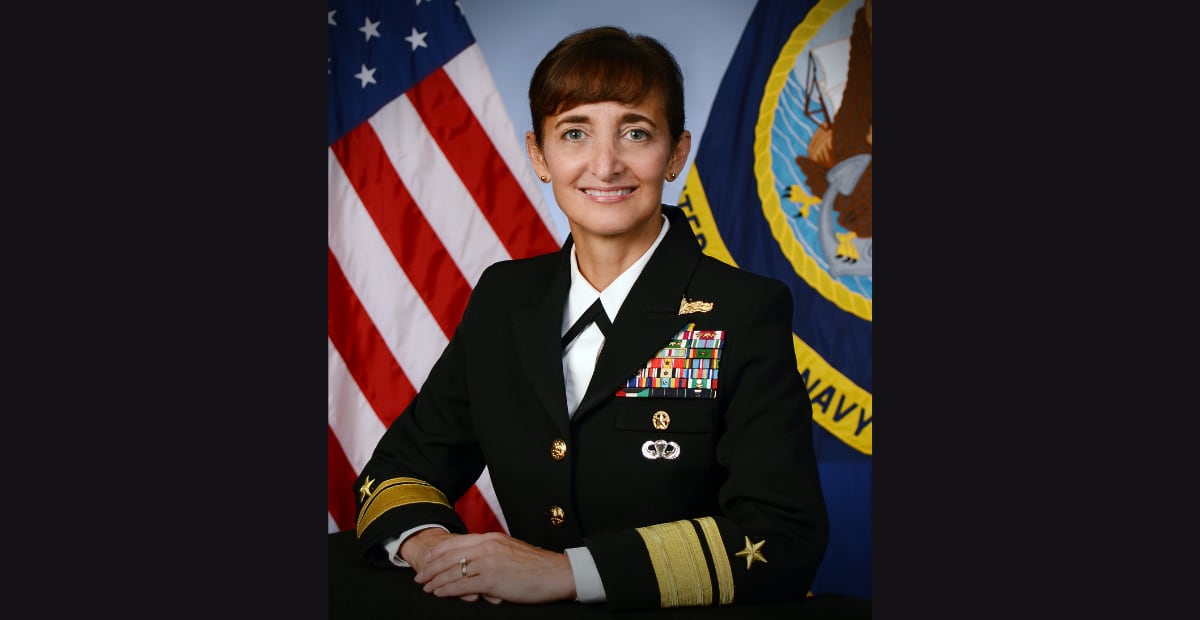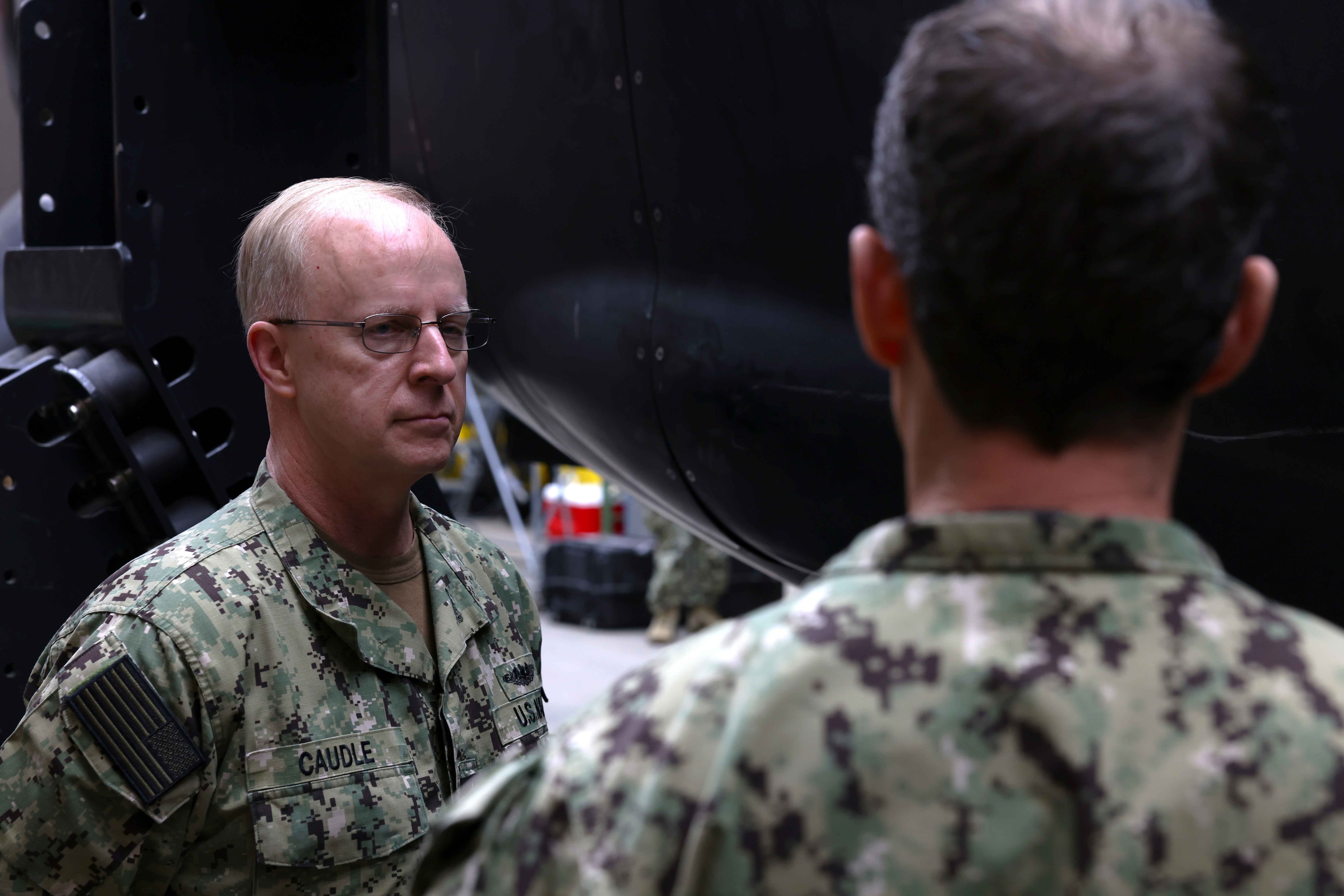President Donald Trump’s nominee for the next chief of naval operations faced no major opposition during his confirmation hearing Thursday before the Senate Armed Services Committee.
Adm. Daryl Caudle, who currently leads U.S. Fleet Forces Command, delivered prepared remarks and answered lawmakers’ questions.
In his opening statement, Caudle described the United States at an inflection point.
“Our country and its citizens are in the midst of a crucial era, defined by global competition, technological saturation, and unpredictable threats that challenge our American dream,” Caudle told lawmakers.
Trump nominated Caudle to serve as chief of naval operations last month. If confirmed, Caudle would replace Adm. James Kilby, who has served as acting CNO after Trump dismissed Adm. Lisa Franchetti in February.
During questioning from lawmakers, Sen. Mazie Hirono, D-Hawaii, raised concerns about the dry dock replacement at Pearl Harbor, Hawaii, a project that has gone over budget, now costing nearly $4.5 billion after an $834 million increase in 2024. She also criticized the project for being four months behind schedule.
The Navy awarded a $2.8 billion contract in March 2023 to Dragados/Hawaiian Dredging/Orion JV to replace a dry dock that was built in 1942 and cannot service Virginia-class submarines or larger surface ships.
Caudle assured the senator that he would do his best to get the plan back on track and on schedule.
Herono also asked Caudle about his commitment to environmental remediation at Red Hill, where a jet fuel leak from the Navy’s bulk fuel storage facility contaminated a water well used by more than 90,000 residents, including service members and their families, living on Oahu.
The Honolulu Board of Water Supply is currently suing the Navy for $1.2 billion to help complete cleanup and install safeguards against further contamination.
Sen. Rick Scott, R-Fla., decried what he deemed the government’s lack of accountability in defense programs, pointing to the Arleigh Burke-class destroyer Jack H. Lucas as an example.
The vessel, Scott said, was commissioned in October 2023 but won’t deploy until October 2028 because radar aboard the ship still needs testing.
Scott questioned why the Navy would build a ship without testing the radar before commissioning it, and asked whether Caudle would hold military personnel, the civilian workforce and suppliers accountable when mistakes were made.
Caudle said he would address problems with timely deliveries and understood the issue, having witnessed struggles with holding military program managers accountable in the past.
“We have a very clear mechanism for operational commanders,” Caudle said. “It’s not so clear with program managers. These are complex programs, multibillion-dollar programs.”
Caudle has been an outspoken critic of manning shortages and delayed ship availability, concerns that align with the Trump administration’s intention to overhaul the maritime industrial base.
Asked how he would quantify success at the end of his potential tenure as CNO, Caudle listed several benchmarks: a growing ship count, on-pace deliveries, reduced gaps at sea, munition floor requirements met and improved training for sailors.
The Navy is on the precipice of its most important chapter in its 250-year history, Caudle said, citing the Navy’s shrinking fleet size and diminished shipbuilding capacity as challenges that need to be tackled. He also highlighted China’s rise as a naval adversary as a primary concern.
RELATED

The Navy must address what he called the “duality of urgency” — being ready to fight now while also preparing for future conflicts. The Navy could not choose one at the sacrifice of the other, he cautioned.
“To achieve this, if confirmed, I will relentlessly pursue full-spectrum readiness — modernizing our fleet’s capabilities, scaling readiness capacity and aggressively forging our resilient and resourceful sailors who bring all our combat power to life,” Caudle said.
He vowed to utilize the modern industrial base to accomplish goals at a faster pace and leverage modern platforms to foster a Navy that was “not only lethal and survivable, but also adaptable and sustainable.”
Riley Ceder is a reporter at Military Times, where he covers breaking news, criminal justice, investigations, and cyber. He previously worked as an investigative practicum student at The Washington Post, where he contributed to the Abused by the Badge investigation.





